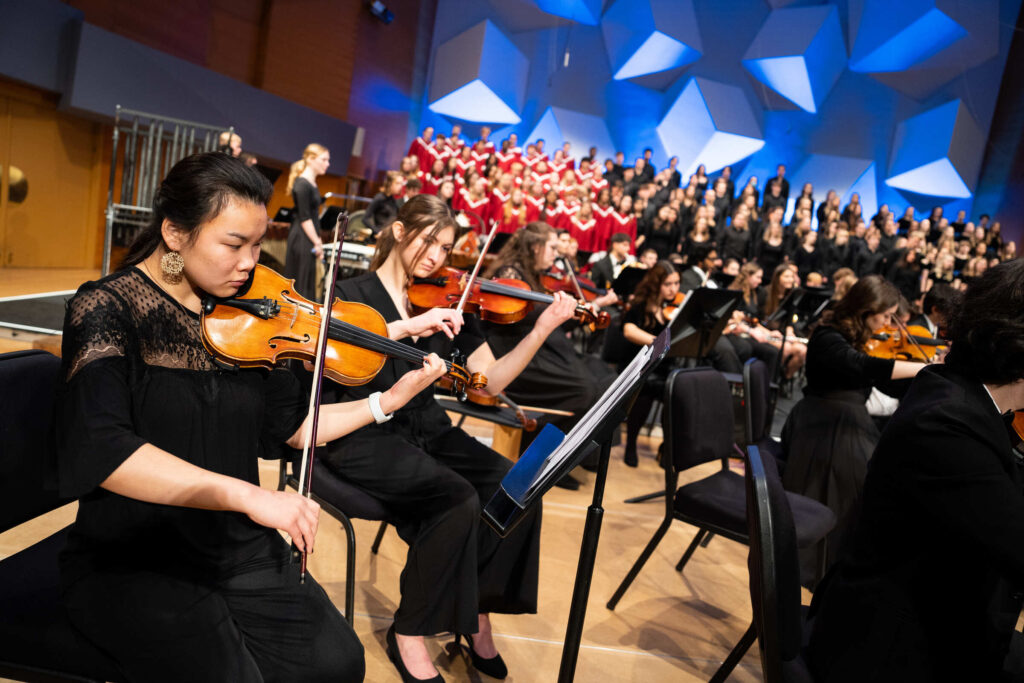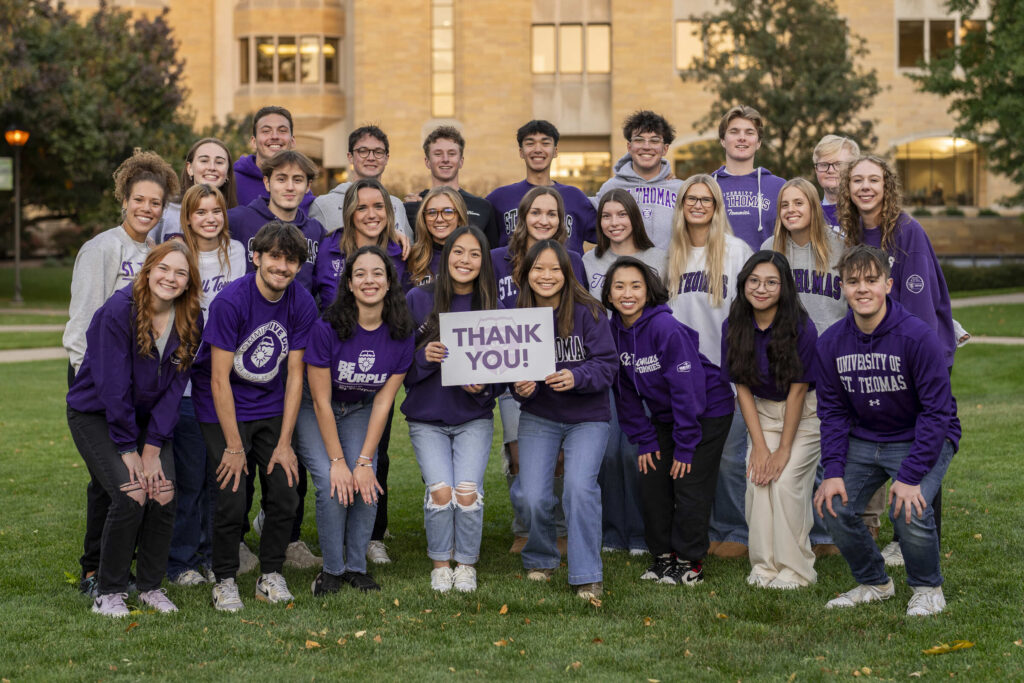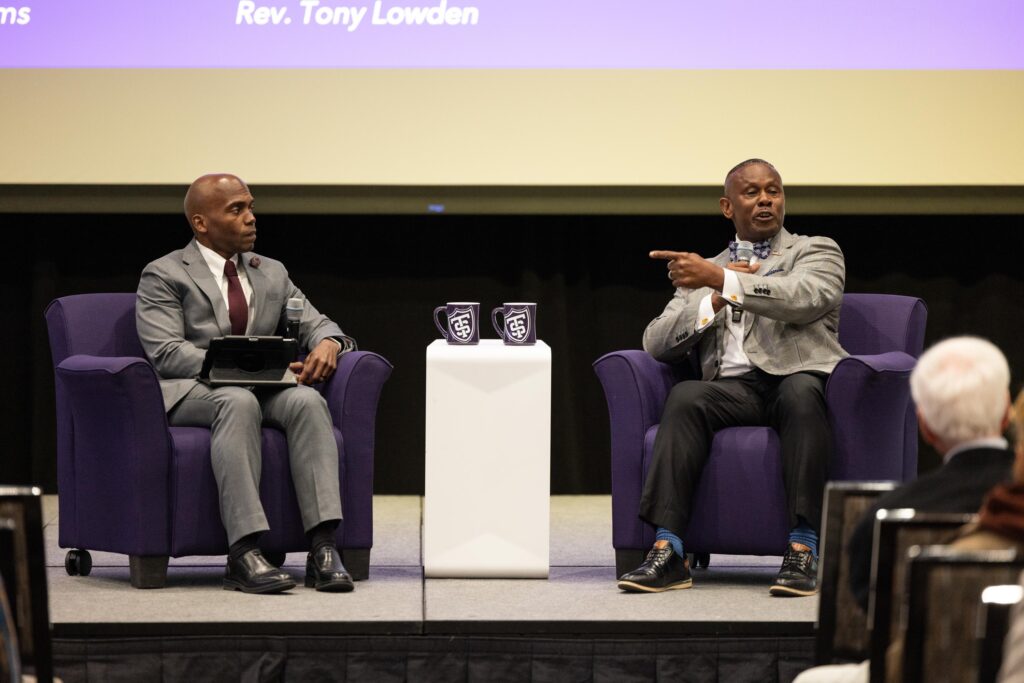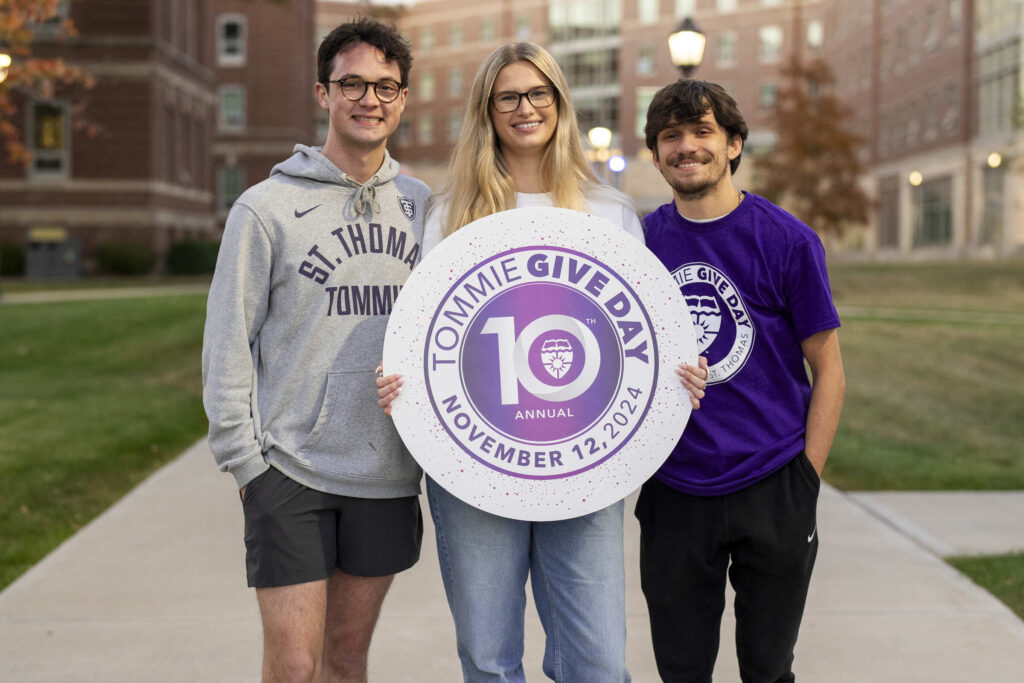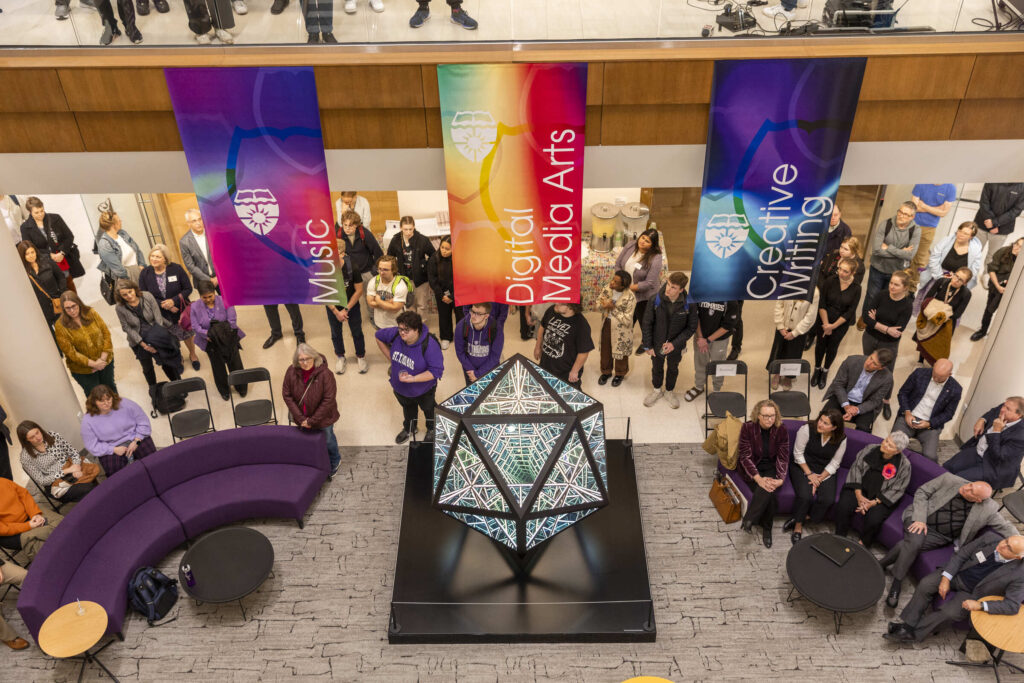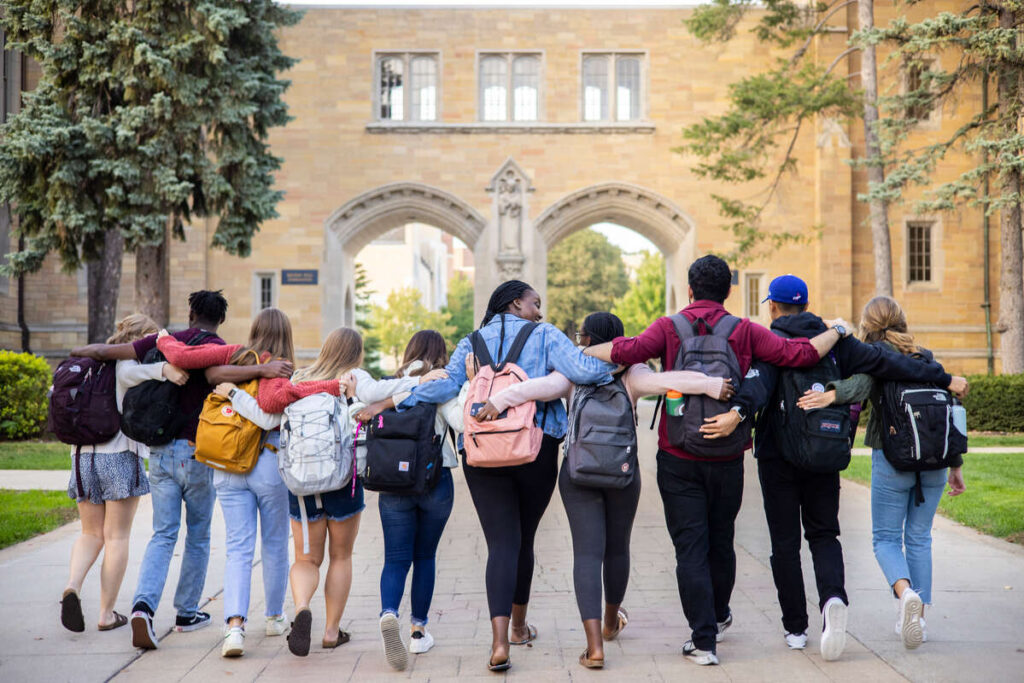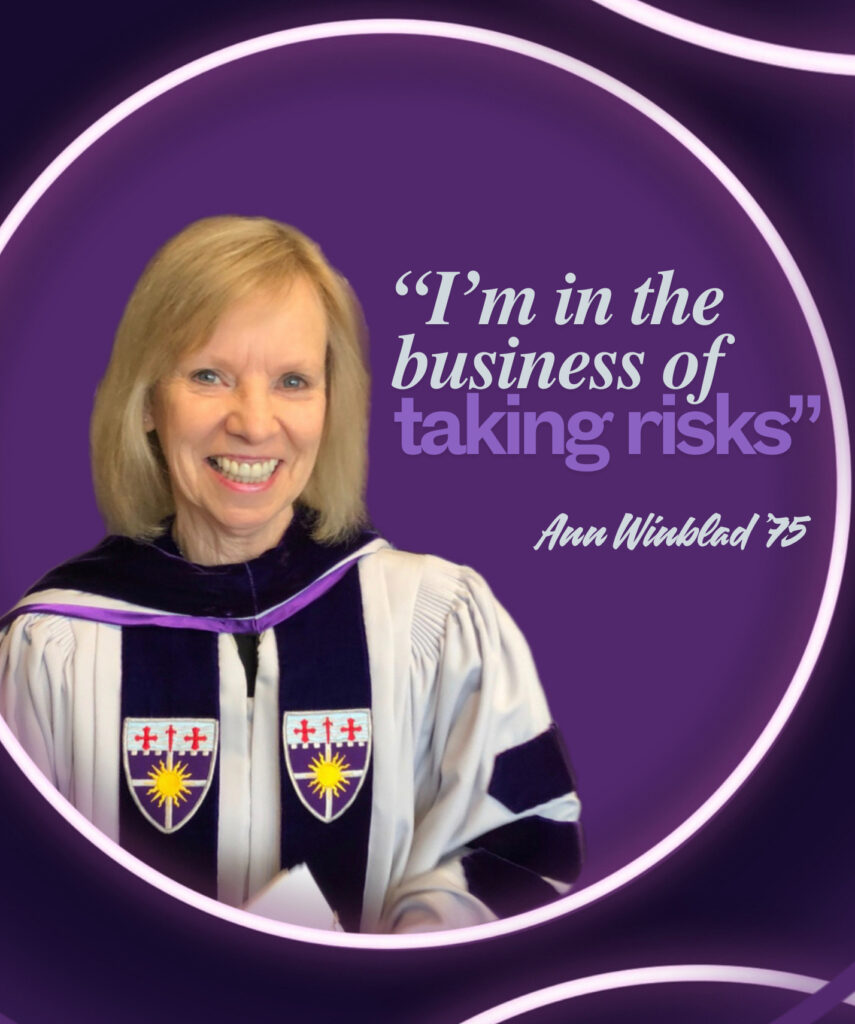The month of May always evokes a sense of celebration for me. Spring is here (yes it really is, despite the recent snow!) and there is a sense of potential and possibility.
In spring, nature shows us what is possible. First, buds appear and later we see trees become full with leaves, and flowers show us their color. Sometimes this is a gradual unfolding, each leaf or flower taking time to show itself. We get to know what is possible with each new leaf and begin to imagine how full the tree might become. Other times it seems to happen overnight with a great burst of energy. We go to bed with the tree outside our window looking nearly bare and wake up with leaves everywhere. It’s as if the tree is saying “I’m here, notice me, look at what I have to offer.”

Salina Renninger
For those of us working in higher education, May is also a time of graduation and the celebration of many student accomplishments. Like spring, it calls forth a sense of potential and possibility. Many students excitedly look toward their futures. Families feel a mix of pride in their child’s accomplishments and hope for a successful path beyond college. As educators, we join in these emotions. We have guided, cared and supported students toward their success and we want the best for them.
The truth is, however, that upon graduation some students will show up fully right away and some will take a bit longer to show their fullness. This will depend on a number of variables. The “right conditions” matter. Just as the spring vegetation varies in inherent hardiness and response to the soil, sun and water conditions, students vary in their own internal resources and responses to the various environments in which they are expected to bloom. There is only so much that one has control over, and given the current news headlines, it might be well to remember this.
If one Googles the term “college graduate outlook,” a variety of headlines will appear. These will range from “job outlook positive for 2013 college graduates” to “job outlook for college graduates is grim.” Many of these stories focus on data that evaluates rates of unemployment, underemployment (part time or poorly paid work), and overqualified workers (working in a “high school job” with a college degree). A 2012 Rutgers University study titled “Chasing the American Dream: Recent College Graduates and the Great Recession” (https://www.heldrichpodcasts.com/Chasing_American_Dream_Report.pdf) noted that only one-half of the 444 study participants (individuals who graduated between 2006 and 2011) indicated they worked full time. A 2013 report from the Pew Charitable Trusts (https://www.pewstates.org/uploadedFiles/PCS_Assets/2013/Pew_college_grads_recession_report.pdf) suggests that while all young adults are impacted by the economic conditions in the United States, college graduates are better off than their peers with an A.A. or high school diploma.
On the one hand, it’s not looking good; on the other hand, it could be worse. By any stretch of the imagination, this is not likely reassuring to a new graduate or anyone who cares for a new graduate. Still, it’s what we have. Given this reality, I am reminded of John Krumboltz’s happenstance learning theory (https://www.studentintegration.fi/filebank/77-The_Happenstance_Learning_Theory.pdf ). The theory provides a dose of optimism and expectations for success, eventually. One of the important tenets of this theory is that one’s career path is a result of a mixture of planning and serendipity, and that it is not fully within one’s control. It is not linear and organized. Rather, most career trajectories are a mixture of intentionally planned events (e.g., earning a degree) and making the most of the opportunity that comes one’s way (serendipity). Additionally, people play an active role in what opportunities come their way. Maintaining an exploratory attitude to each endeavor in which one engages has the potential to yield more opportunity over time.
Ask any person you want about “work story” and you will quickly see how much the role of “chance” plays in his or her trajectory. Sometimes it comes in the form of discovering that your neighbor knows someone who knows someone who can help you get your foot in the door at a particular corporation. Other times it’s applying for one job but being offered something else you hadn’t considered, but wind up loving. Nonetheless, it’s also important to recognize the same chance opportunities may not be as readily available to all individuals. Work by Mahzarin Banaji and Anthony Greenwald (https://www.npr.org/blogs/codeswitch/2013/04/22/177455764/What-Does-Modern-Prejudice-Look-Like) on why individuals may be more likely to help others who are perceived to share some type of group identity suggests that discrimination can unintentionally occur when individuals solely reach out to those more “similar” to them. While happenstance learning theory recognizes the power of the individual to create opportunity through networks and experiences, it is important to recognize some inherent limits. Extending opportunity toward all, versus solely those who share similar identities, is necessary and required for everyone to thrive.
Happenstance learning theory is not only about making interpersonal connections and creating opportunity through openness to various experiences. It also is about getting to know one’s self and what that could mean in the work world. It might involve discovering aspects of a job that are satisfying and determining how to have similar experiences, but in a different work setting. By way of example, I would suggest that my own experience of cleaning residence hall bathrooms as a college sophomore taught me that I love completing tasks with a beginning, middle and end. It’s quite satisfying. Nearly 30 years later, doing very different work, I find I am the same. I still enjoy tasks that have clear beginnings and endings. Happenstance learning theory suggests observations like this are worth paying attention to. I didn’t take the job to clean bathrooms because I love cleaning. I took the job because it was conveniently located in the residence hall in which I lived and paid a fairly decent wage compared to other positions on campus. By staying open to the experience and learning what I could, I found out something important to my lifelong career satisfaction.
Thus, while the job outlook data may look somewhat discouraging, I challenge new graduates to adopt an attitude of discovery, potential, possibility and generosity. Scan the horizon for new prospects and say yes when they arrive. Offer your assistance to others when you can. Notice what energizes and excites you, and what depletes and diminishes you. Make efforts to engage in greater energizing activities and fewer activities that deplete you. This approach will yield results. I also encourage the important others in our young folks’ lives to help them maintain this perspective during daunting times.
And always know that like the trees and flowers of spring, some graduates will burst onto the scene in full foliage and color and others will take a bit longer to unfold. In the end, their beautiful offerings will all be revealed, if we assist with creating the right conditions for discovery and success.

